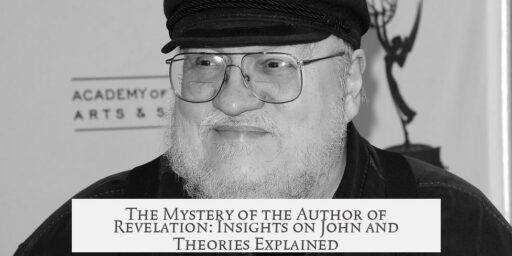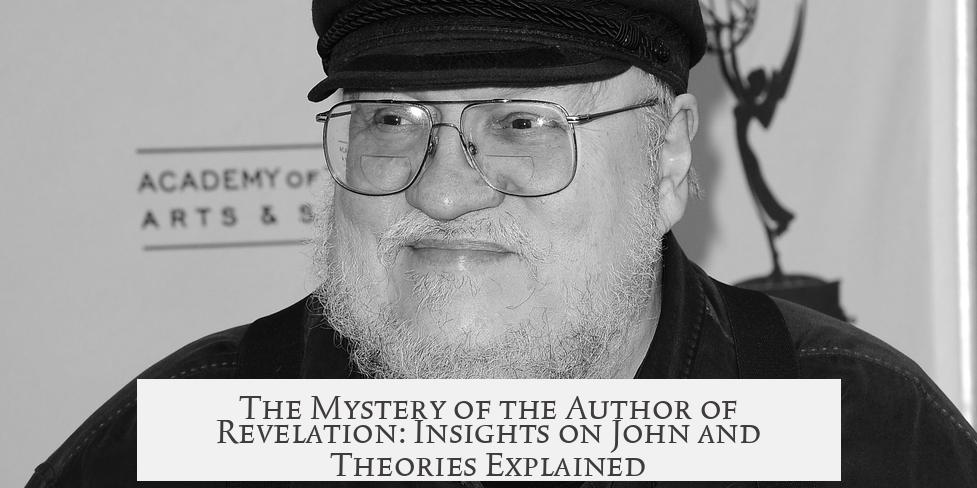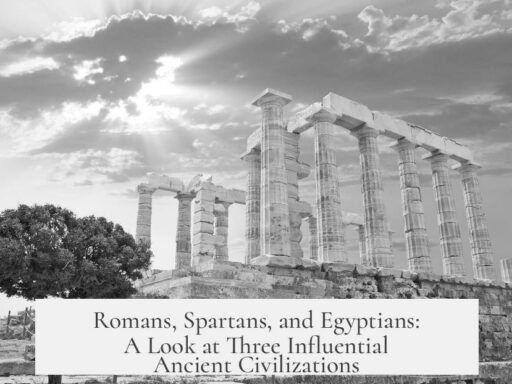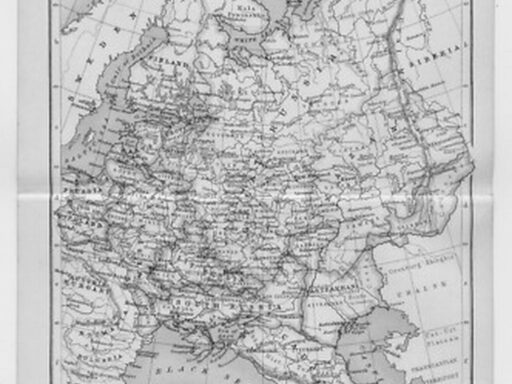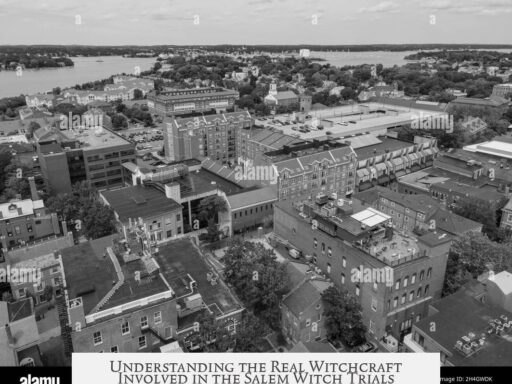The book of Revelation is traditionally attributed to a figure named John, though the exact identity of this John remains uncertain and debated among scholars. The text itself simply self-identifies the author as “John,” omitting any direct claim to be John the Apostle. This anonymity has led to several theories about who truly wrote this apocalyptic text.
There are four main authorship theories regarding Revelation. The first credits John the Apostle, one of Jesus’ original disciples. Although this is a popular view, the text does not explicitly call the author John the Apostle, which weakens this argument.
The second theory points to another John, known as John the Elder. Early church historian Eusebius quotes Papias, who may have distinguished between two different Johns in Asia Minor. John the Elder is a possible candidate but remains uncertain because the existing evidence is minimal and ambiguous.
The third theory posits the book is pseudonymous, written by someone not named John but using the name for authority. However, this theory faces challenges. Unlike other apocalyptic works, Revelation does not claim authority by borrowing from ancient figures. The author simply calls himself John without specifying “the Apostle” or another well-known John. This weakens the argument for deliberate pseudonymity, as adopting the name John without adding an authoritative title serves little purpose.
The final theory considers Revelation a composite work, created by a group of followers, possibly linked to early Christian communities around John the Baptist. This view is less widely accepted but suggests multiple contributors shaped the text over time.
The identity of John is further complicated by textual and stylistic details. Revelation’s style of Greek differs sharply from that of the Gospel of John and the Epistles attributed to John the Apostle. The Greek in Revelation is often described as unusual, with non-standard grammar and syntax. Some scholars suggest the author may have been a non-native Greek speaker or intentionally used a distinctive style.
Despite these differences, thematic and vocabulary similarities exist between Revelation and the Gospel of John, including use of specific Christological titles, exodus motifs, and certain words, suggesting some connection or shared tradition.
Historical debates highlight these uncertainties. Dionysius of Alexandria in the 3rd century noted doubts about whether John the Apostle wrote Revelation. He observed stylistic and linguistic discrepancies, concluding that although the book appears inspired, it likely did not come from the Apostle who authored the Gospel and Epistles. Dionysius also recognized that other early Christians questioned Revelation’s authorship, sometimes rejecting the book because of its obscure style and dense symbolism.
Further, Eusebius records Papias’ mention of two different Johns—John the Apostle and John the Elder—each with possible claims to the authorship. This ambiguity points to multiple figures named John active in early Christian Asia Minor, where the book likely originated.
| Theory | Main Claim | Support | Challenges |
|---|---|---|---|
| John the Apostle | Author is the apostle and brother of James | Traditional view; early Christian attribution | Text does not self-identify as Apostle; style differs from Gospel |
| John the Elder | Different John referenced by Papias | Historical mention by Papias and Eusebius | Evidence is minimal; distinction between Johns unclear |
| Unknown Author Named John | Self-identifies simply as John | Textual self-identification; avoids pseudonymity | Little external evidence; anonymity creates doubt |
| Composite Work | Written by a circle of followers | Explains stylistic variety and complexity | Not widely accepted; lacks strong manuscript evidence |
Stylistic analysis reveals why this authorship remains debated. The Greek used in Revelation contains idiomatic expressions and unusual syntax, unlike the polished Greek of the Gospel of John. This suggests a different author or context. Still, shared thematic elements imply some connection between these Johannine writings.
Early church skepticism, as voiced by Dionysius and others, focused on the style and perceived obscurity of Revelation. It took centuries for Revelation to gain universally accepted canonical status in the Christian Bible, partly because of these authorship questions.
To summarize, the authorship of Revelation lacks a definitive answer. Most scholars agree the author was named John, consistent with the text. But whether this John was the Apostle, the Elder, or another figure remains unknown. The argument against pseudonymous authorship is strong but cannot conclusively resolve the question.
- The author identifies himself simply as “John,” without clarifying which John.
- John the Apostle is a traditional but unconfirmed candidate.
- John the Elder is a historical figure suggested by some early sources.
- The Greek style and vocabulary differ significantly from the Gospel of John.
- Early church leaders questioned but also affirmed the book’s inspired character.
- No consensus exists; scholarly opinion remains divided.
Who Wrote the Book of Revelations? Unraveling the Mystery of John
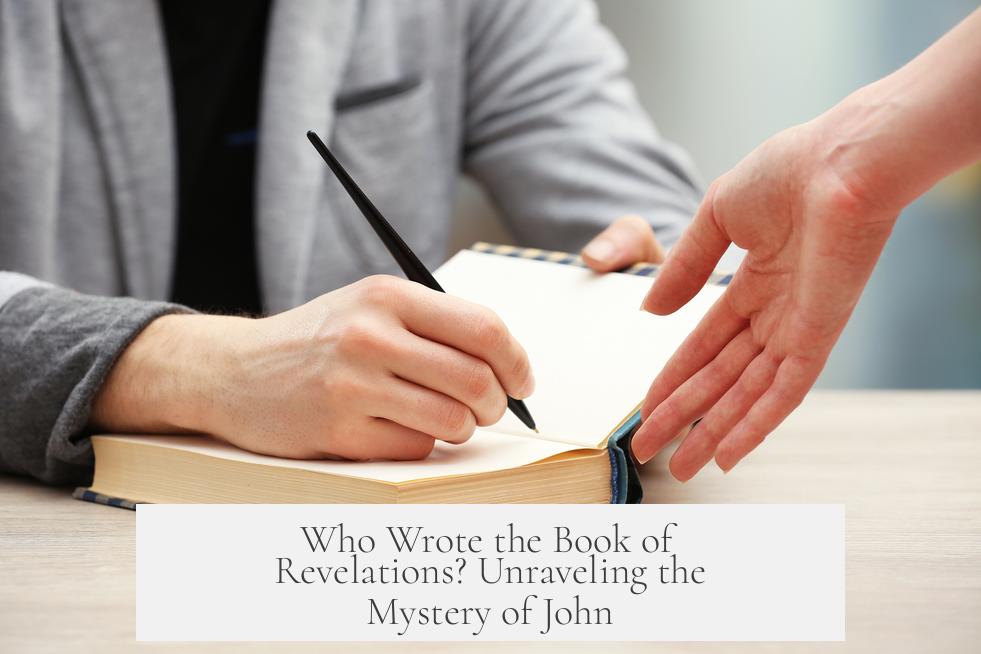
Who wrote the Book of Revelations? The simple answer is: no one knows for sure, but the author identifies himself only as John. There’s no explicit claim that this John is the Apostle John, or any other John for that matter. Let’s dive in and untangle this complex authorship puzzle.
Picture this: an ancient text, apocalyptic in tone, filled with symbolic imagery and mysterious visions. It’s called the Book of Revelations, or simply Revelation. The author signs off as “John,” but which John? Let’s walk through the four main theories scholars have debated over decades.
1. The Four Main Theories About the Author of Revelation
- John the Apostle: Many assume the author is John the Apostle—the same John who allegedly wrote the Gospel of John. However, the text itself never states explicitly that the author is John the Apostle. This popular attribution relies more on tradition than direct textual evidence.
- Another John—John the Elder: Some scholars suggest the author might be “John the Elder,” a figure mentioned by Papias and cited in Eusebius’s Ecclesiastical History. But even this theory rests on shaky ground. It’s unclear if Papias even distinguished between two Johns or casually acknowledged the existence of two men named John in Asia Minor.
- Someone not Named John—Pseudonymity: The idea that Revelation was written by someone else using the name John is a classic hypothesis in biblical scholarship. Yet, unlike many pseudepigraphical works in that era, Revelation’s author does not borrow authority from a famous ancient figure. Instead, he simply calls himself John. This undercuts the argument for pseudonymity since a false author typically adds some authority by naming a notable predecessor.
- A Composite Work by a Circle of Followers: A less common but fascinating view is that Revelation was the product of a group or “circle” associated with John the Baptist rather than a single individual named John. This theory comes from modern scholars like J. Massyngberde Ford, who points to the text as a composite, reflecting multiple voices or influences.
Given these options, the first and third views tend to dominate discussions, but none come with a bulletproof alibi.
2. Why Rejecting Pseudonymity Matters Here
One might think, “Maybe John who wrote Revelation is a pen name.” But here’s the catch: pseudonymous authors usually boast a connection to someone famous to boost credibility. The Revelation author doesn’t do this. Instead, he just signs off as “John.” Why would anyone fake the name John without adding “the Apostle” or “the Elder” for extra punch?
It’s also true that if an unknown author picked the name John arbitrarily, it’s almost the same as an actual John writing the book. So, pseudonymity doesn’t clarify anything—it just swaps one unknown for another.
3. Pinning Down “John” — Apostle, Elder, or Who?
So, who exactly is this John?
The author never claims explicitly to be John the Apostle. Nor does the author of the fourth gospel boldly announce himself as such. Scholars have long puzzled over why the gospel and Revelation don’t clearly state their authorship. If John the Apostle wrote both, why the silence?
Then, we have John the Elder, an early Christian leader mentioned by Papias. Eusebius recounts this reference but admits the data is thin. In fact, it might just be a witness to two different Johns in the same region rather than proof of a separate author.
This murky reference leaves us in a fog. We can’t confidently say Revelation’s John is the Apostle or the Elder—or neither.
4. Stylistic Clues: Language, Vocabulary, and Grammar

Another detective tool is language analysis. Revelation’s Greek is odd—different from the smooth Greek of the Gospel of John. Some say the author made grammatical mistakes, or used “barbarous idioms,” which could mean he wasn’t a native Greek speaker. Others guess he did this intentionally, maybe for effect.
Yet, Revelation and the Gospel of John share some motifs—like the Exodus-Moses theme and certain Christological titles. There’s also some overlap in vocabulary. These similarities hint at at least some intellectual or theological connection, if not common authorship. It’s like spotting family resemblances between two distant cousins.
5. Historical Doubts and Early Criticism
The mystery deepens with early critics like Dionysius of Alexandria, writing in the mid-3rd century. He wasn’t impressed with the style of Revelation’s Greek. Dionysius even thought the author might not be John the Apostle. He pointed out that the evangelist’s language differs from that in Revelation. Ouch.
Interestingly, Dionysius’s doubts were partly motivated by local theological battles, showing how politics and doctrine shaped opinions on the text.
Papias, earlier still, mentioned two Johns, stirring debates about authorship. Eusebius quotes him to suggest the Revelation author might be “John the Elder,” not the famous apostle. That said, these fleeting references give us no firm conclusion, just intriguing possibilities.
6. What’s the Bottom Line? Why Should You Care?
If you’ve waded through layers of ancient debate, Greek idioms, and shadowy Johns, here’s the takeaway:
The authorship of the Book of Revelation remains a well-guarded secret of antiquity. The author calls himself John, but which John? Scholars don’t agree.
So what? Why does this matter today? For one, understanding who wrote Revelation helps us grasp the context, theology, and purpose baked into its vivid visions. If the author were John the Apostle, the text might connect more directly with the early Gospel tradition. If another John, or a whole circle of followers, the book might reflect different theological agendas or historical moments.
Also, if the author was not a Greek native, that might explain some stylistic quirks and reshape how we interpret the text’s symbolism and phrasing.
Finally, this authorship mystery invites us to embrace the book’s complexity rather than forcing easy answers. Revelation challenges readers with its cryptic prophecies, not just theologians with its obscure history.
What Can We Learn from This Authorship Puzzle?
- Don’t jump to conclusions. Just because tradition says “John the Apostle” doesn’t make it true. Examine claims critically.
- Appreciate the theological richness. Revelation’s layers of meaning don’t depend solely on its author’s identity. The visions speak powerfully on their own.
- Embrace ambiguity. Sometimes ancient texts defy neat categories. The debate itself shows how lively, interesting, and mysterious biblical studies can be.
- Look beyond names. Whether John was an apostle, elder, or symbolic figure, the text’s impact on Christian thought and apocalyptic literature is undeniable.
In Conclusion: John’s Identity Is an Enigma — and That’s Okay
Who wrote Revelation? No solid answer. The author calls himself John, but which John? From the Apostle to John the Elder, from pseudonymous writer to collective authorship—the options abound. Early skeptics like Dionysius questioned the traditional view, noting linguistic and stylistic differences. Papias’s note about two Johns muddies the waters further.
This mystery around authorship doesn’t diminish the book’s significance. Instead, it invites modern readers into a centuries-old conversation filled with intrigue, theology, and history. It encourages us to ask questions, dig deeper, and appreciate ancient texts as products of complex communities.
So next time you flip through Revelation’s stormy seas of angels, beasts, and visions of the apocalypse, remember: the hand behind this epic work remains a fascinating enigma, much like the book itself. And sometimes, not knowing everything just makes the journey more exciting.
“Therefore that he was called John, and that this book is the work of one John, I do not deny. And I agree also that it is the work of a holy and inspired man. But I cannot readily admit that he was the apostle, the son of Zebedee, the brother of James…” – Dionysius of Alexandria, circa 3rd century
Curious to explore more about Revelation’s authorship debates or the text’s apocalyptic symbolism? Feel free to dive into the works of R.H. Charles’s The Revelation of St. John or Beckwith’s The Apocalypse of John. They offer fascinating insights into this timeless puzzle.
